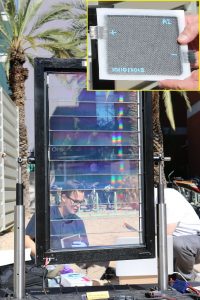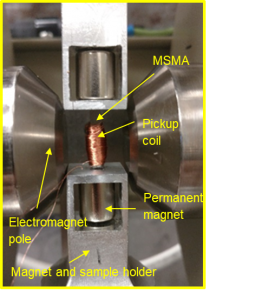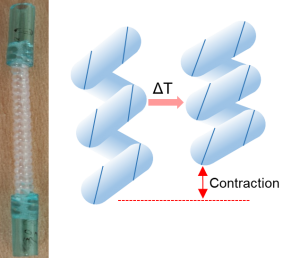Contact the Department of Mechanical Engineering
Adaptive Structures & Intelligent Systems
NAU Mechanical Engineering research projects
Our research in the field of adaptive structures and intelligent systems is world renowned and includes a focus on magnetic materials, thermal actuation, and energy harvesting. Details on some of our research projects in adaptive structures and intelligent systems are described below. Please contact the lead faculty to learn more about any of our research projects.
Project abstracts
Multifunctional Carbon Fiber Composites Accordion Closed
Lead: Cornel Ciocanel
Keywords: Power storage, supercapacitor, lightweight, structural
This research is focused on the development of a carbon fiber based composite material with power storage capability. Embedding supercapacitor-like power storage in structural components facilitates weight and volume reduction, as well as extended operation, for electrically powered systems (e.g. UAVs, laptop, phones, etc.).
Fracture magneto-mechanics of Ni-Mn-Ga Accordion Closed
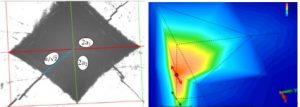
Lead: Cornel Ciocanel
Keywords: Fracture toughness, microindentation, crack growth
This research is focused on the fracture toughness and rate of crack growth for a Ni-Mn-Ga alloy, contributing to the comprehensive characterization of this relatively new material. The fracture toughness is investigated using micro- and nano-indentation techniques, while the crack growth rate is investigated using the pulsed current potential drop method (DCPD).
Magnetic Shape Memory Alloys Accordion Closed
Lead: Heidi Feigenbaum
Keywords: adaptive materials, magnetic materials, magnetic shape memory alloys
Magnetic shape memory alloys (MSMAs) can undergo a recoverable deformation in the presence of a magnetic field or mechanical load. In this project, our group has developed several thermodynamic based models to predict the magneto-mechanical behavior of MSMAs, the most recent of which is fully three-dimensional. We are also trying to optimize use of MSMAs for various applications, most notably current work focuses on power harvesting with MSMAs.
Twisted Polymer Actuators Accordion Closed
Lead: Heidi Feigenbaum and Michael Shafer
Keywords: biomimetic, artificial muscles, twisted polymer actuators, super coiled
Magnetic shape memory alloys (MSMAs) can undergo a recoverable deformation in the presence of a magnetic field or mechanical load. In this project, our group has developed several thermodynamic based models to predict the magneto-mechanical behavior of MSMAs, the most recent of which is fully three-dimensional. We are also trying to optimize use of MSMAs for various applications, most notably current work focuses on power harvesting with MSMAs.
Machine Learning for Uncertainty Quantification Accordion Closed
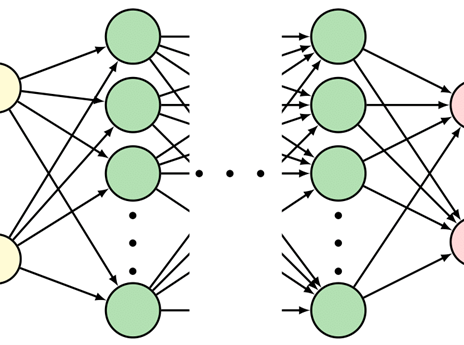
Lead: Subhayan De
Keywords: scientific machine learning, neural networks, uncertainty quantification
Recently, machine learning (ML)-assisted models, such as neural networks, capable of describing some of the complex physical phenomena with good accuracy and reasonable computational cost, are increasingly used in engineering applications. For exercises that involve many realizations of the engineering systems (e.g., uncertainty quantification, design under uncertainty), these ML-assisted models can be exploited to develop physics-based surrogate models that are inexpensive to evaluate once trained but, at the same time, accurate. However, these networks require a large dataset to train. In this research thrust, efficient training of neural networks using smaller datasets for applications to engineering problems is explored.
Design Optimization under Uncertainty Accordion Closed

Lead: Subhayan De
Keywords: topology optimization, robust design
In topology optimization (TO), we think about optimally distributing materials inside the structure to satisfy some performance criteria. However, in the presence of uncertainty, achieving a meaningful robust design is computationally burdensome as the number of optimization variables is large in TO. The aim of this research thrust is to develop efficient design methodology and algorithms that can reduce the computational cost of robust and reliability-based optimization while considering uncertainty across multiple scales.
